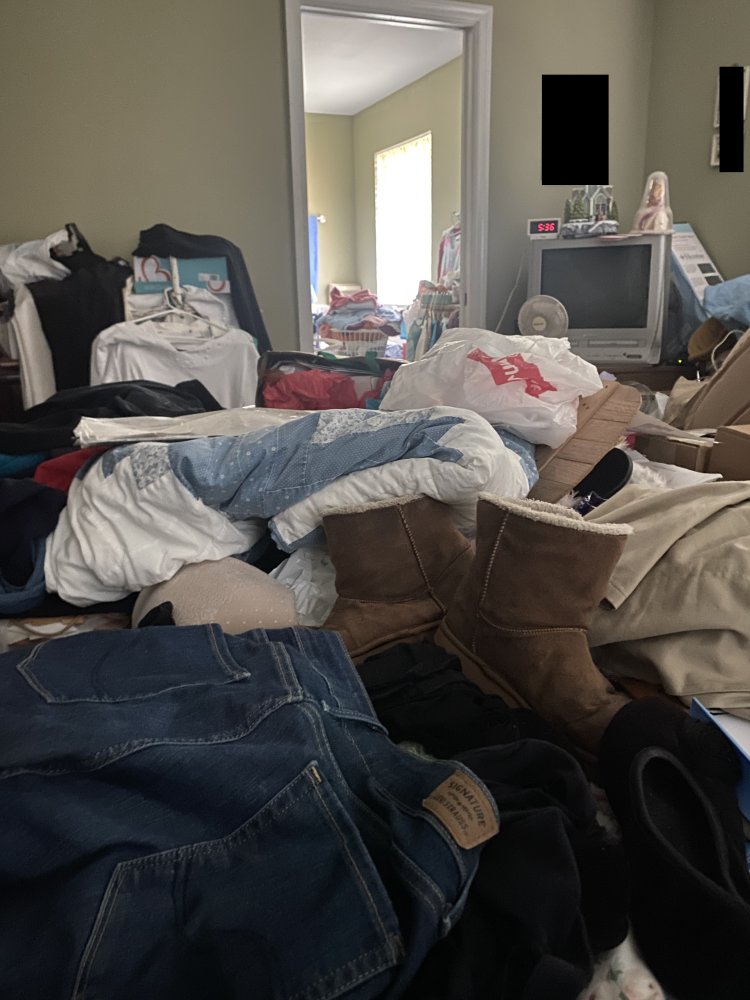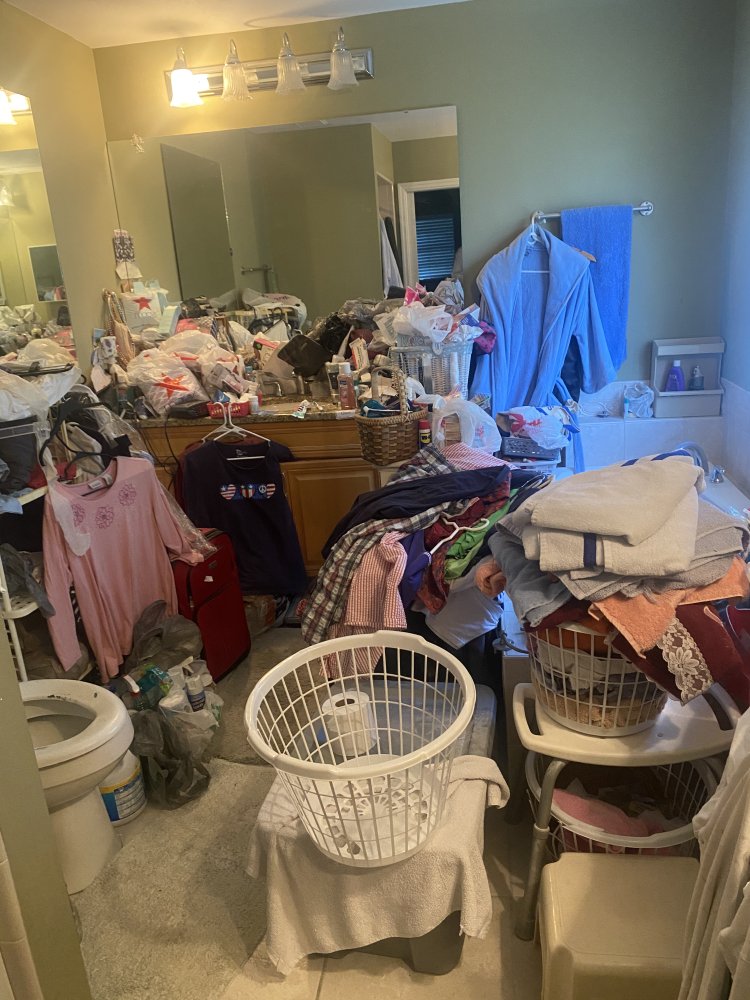My Life with a Central Florida Karen: Letters to the Editor

*Jim Hanson, a pseudonymous local resident, sought anonymity in the publication of this letter.
When the late great Tennessee Williams wrote the Glass Menagerie, he painted a portrait of a family filled with dysfunction. In this quintessential American story, an aged southern belle lives in a tiny city apartment where her son supports the household and grapples with caring for his disabled sister.
Although an adult, his commandeering mother seeks to control every aspect of the household, subjugating each resident to her tyranny, ultimately leading him to abandon the family.
We witness in Tennessee Williams’ work perhaps the very first example of what many refer to today as a Karen.
Everyone knows the typical behavioral traits of Karens, the common threads connecting the species: “I need to speak with a manager.” “Service is terrible at this restaurant, no one wants to work anymore... stupid 'Millen-yules.'” “What are you doing in my neighborhood?”
Karens come in all shapes and sizes, comprising a mindset more than just a gender or a race, although most tend to be white, female and from the Baby Boomer generation.
Although some view the pejorative term as a sexist insult, others, like myself, live with a Karen, and know that comical stereotype is sadly more true than false.
The essence of a Karen can be summarized in one word: entitlement.
When their parents returned from war in 1945, Karen's generation experienced one of the greatest economic surpluses in history. The wartime generation, whose experience of adolescence and childhood in the Great Depression — which molded their thinking — hoped for a less strenuous upbringing for their children — one far better than they had in their younger years of poverty and tumult.
And so, the world of the Brady Bunch was born, and with it, the egoism and entitlement of the Baby Boomer generation — and by extension, a new species of human: Karenus Americanus.
The narcissistic nature of Karens generally leads to the exhibition of five overarching traits — hoarding, report filing/complaining, racism, religious sanctimony, and political psychosis.
Life with my Karen includes all five.
It is no surprise that many Karens hoard items in their homes, a disorder which psychologists point to as driven by egoism. In my home — which I currently co-own with a Karen — piles and piles of junk lay about in mountainous heaps with enough unused clothing and miscellaneous objects to start a thrift store. Organize or dispose of excess rubbish, and the police will be summoned.



Pictured: The natural habitat of the American Karen
But the frivolous calling of law-enforcement by Karens is not isolated to home life. This trait extends to the neighborhood and community at large. A black man walks through the streets and local authorities are alerted of a prowler. A Hispanic person tries to enter his apartment complex, blocked by a Karen at the door on the phone with dispatch. We’ve all seen and heard the examples on social media and television.
To the typical Karen, such individuals warrant harassment because, after all, “they are different than me. I am better.” And because “I am better, I am entitled to superior treatment.”
A similar situation occurred with my own Karen recently. An Islamic man applied to be a tenant at our property. Despite legality issues, my Karen decided to racially and religiously profile the individual by asking where they were from and what faith they adhered to as part of the parameters of the application process.
Once I pointed out this behavior violated federal regulations regarding fair housing, the wrath of Karen commenced. In the mind of a Karen, it is not possible for her to be wrong. And so, when approached with new information, the Karen immediately begins to spew threats and vitriol, perhaps even resorting to religion as a catchall backdrop.
This suits the Karen well, especially in a household where others are non-religious. After all, since they are the standard bearer of religion — and God is always right — their opponents must be on the opposite side of decency.
“God is going to strike you down with lightning.” “You’re going to burn in the lake of fire.“ “God will bring you down.“ These are the telltale signs of a religious Karen.
But perhaps the worst trait of a Karen is their susceptibility to media manipulation and conspiracy theories. A recent study by the European Journal of Social Psychology illustrated that a belief in conspiracy theories often tends to emanate from severe egoism and entitlement as well.
Based on a series of questionnaires and mental examinations, the results of the study demonstrate that individuals who hold conspiracy theories about COVID-19 are more likely to be motivated by self-concern, even to the detriment of their neighbors. Conspiracy theorists were, in general, more likely to practice hoarding, (predictably) less likely to endorse vaccination, and less concerned with the welfare of those close to them — in line with the typical profile of the American Karen.
My own Karen believes in the holy trinity of conspiracy theories — QAnon, the Bill Gates Chip-vaccine theory, and the “Big Steal” Election Conspiracy.
Pictured: A group of Karens gather in support of the QAnon conspiracy recently in Dallas/Courtesy: AP
Dealing with these problematic behaviors and thought processes remains a major dilemma for those of us with familial and financial ties to Karens.
In personal terms, overcoming the manipulation and insanity of a Karen may seem, and simply be, insurmountable. But demographically, and economically, Karens — a change not even John F. Kennedy, Jr. or QAnon can stop.
The unrealistic demands of service at restaurants, bars and grocery stores may be reaching a point of metastasis. The ubiquity of technology demands for a change in how business and society operates.
Karens no longer receive the service they once prized at Steak ‘n Shake and Denny’s, many of which have replaced servers with automated machines.
Perhaps the rapid increase of Karen-like episodes on planes and in stores is a result of the pressure this demographic feels in respect to technological evolution and their entitled way of life.
But the entitlement and narcissism of Karens go much deeper than simple complaints at a dining establishment. They strike at the core of our political conflicts today.
A Karen will oppose programs such as the Affordable Care Act as a "hand out" but at the same time demand "all the benefits they are entitled to" when they reach 65 and qualify for Medicare and Social Security.
In the meantime, the very same people who Karens will scold at restaurants for being lazy servers and stupid millennials pay for Karens' medical bills through their payroll taxes.
The greed-based economy invented by the Karen generation now sits on the precipice, and the chickens are coming home to roost. Unfortunately for the rest of us, sweet revenge may never come about within their lifespan.
By the time the apocalypse does arrive, the Karens will likely have passed on, unable to witness the full scope of the chaos and destruction left in their wake.
A word of advice for the Karen generation? To parody Tennessee Williams' final line in the Glass Menagerie: "Blow out the candles, Karen, blow out the candles..."
Content in the publication's "Letters to the Editor" category does not necessarily reflect the view of OrlandoLocalNews.com or our writers.

 Jim Hanson
Jim Hanson 














